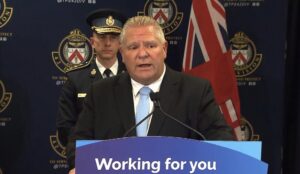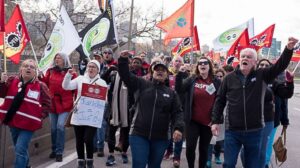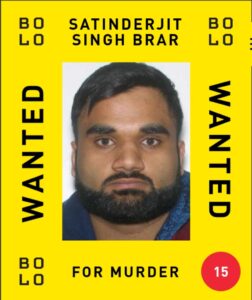Local leaders ask parties for pledges to protect, expand rental housing

OTTAWA — Canada’s municipal leaders are asking federal parties to not only build new affordable rental units, but pledge to protect ones on the verge of disappearing.
As an election campaign plays out across the country, the Federation of Canadian Municipalities has said it’s seeking money to help cities and housing providers buy low-rent units that could fetch a far higher price.
Often, that is done through the process of “renoviction” where a landlord removes a tenant, makes upgrades and then lists the unit at a higher price.
The issue is one of several that the federation has put forward for parties to consider as part of billions in hoped-for spending to expand affordable housing options.
Federation president Joanne Vanderheyden says there is a particular need to expand and protect rental options as the price of housing skyrockets across Canadian municipalities.
She says local leaders are looking for promises to help preserve and expand market and non-market rental options.
With every party prioritizing affordable housing on the campaign trail, Vanderheyden and her municipal counterparts are optimistic that they can get most, if not all, of what they’re asking for as they see residents of their cities getting priced out of the market.
“There’s nothing worse than answering the phone and having someone weeping on the other line being evicted and not having any place to go,” said Vanderheyden, mayor of the Municipality of Strathroy-Caradoc, just west of London, Ont.
“People need a place to live. Everyone needs a safe, affordable place to live. So this is the problem, that’s the base of the problem. So how do we get there?”
For the federation, the path starts with $585 million to launch a program to buy low-rent market housing in a bid to spare it from “renoviction” or being converted into higher-priced units.
The federation estimates that much money would help local groups purchase 10,000 low-rent units, and protect more by expanding and better landlord incentives so they can make repairs and retrofits without the need to increase rents.
The New Democrats have already proposed a measure to deal with “renoviction” by providing $5,000 in annual rent subsidies.
The Liberals have countered that the NDP are forgetting the existing portable rental supplement the Trudeau government brought in, and which provinces have signed on to.
The federation is also looking for $11.5 billion over five years to help community housing groups, non-profits and co-operative housing providers build 70,000 new, affordable rental units that would be considered non-market.
There is also a request to reshape existing incentive programs for rental housing to get more of it built.
Vanderheyden said new housing supply needs to meet a wide range of Canadians’ needs, whether it is a growing family in search of more living space, aging homeowners looking to downsize, individuals under a threat of eviction, or those with no home at all.
“We need to increase our affordable rental supply and that’s through the preservation and expansion of both market and non market rental options,” she said in an interview.
“We need to alleviate the pressures on housing affordability and availability for homeowners and renters — whether you own or rent doesn’t matter.”
The federation’s campaign asks revisit requests municipal leaders have put to Trudeau and his senior cabinet ministers, including setting a timeline to end chronic homelessness. The Liberals promised to do just that in the 2019 throne speech.
There is also a request to pour more money into a rapid-housing program to the tune of $5.5 billion over five years to quickly build or buy 18,000 affordable housing units, which would almost double the 9,200-unit goal the initiative has now.
And municipal leaders are making yet another plea for whoever forms government to create a special housing strategy for urban Indigenous people, which didn’t make it into April’s federal budget to the surprise of those in the sector.
The federation is looking for parties to pledge to spend $3.3 billion over the next five years to create 20,000 units for Indigenous households.







